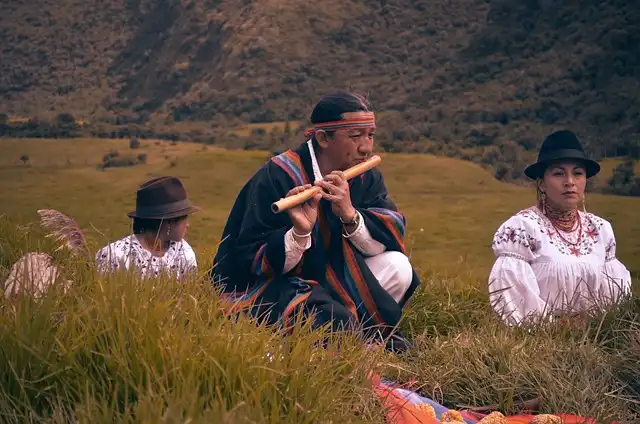Indigenous Voices Rise Above the Din of Mining in North Sulawesi

The project team plans to build on its success by training aspiring Indigenous broadcasters, conducting follow-up research on the long-term impacts of mining, and expanding its online presence to reach a wider audience.
The project likewise highlighted the important function of Native ladies in environmental stewardship and neighborhood management. By actively entailing ladies in interviews and broadcasting activities, “Sumirita In Tana Minaesa Tarekan” emphasized the importance of gender equality in dealing with the difficulties postured by mining.
Similarly, in the Tonsawang territory, the task uncovered the social upheaval caused by illegal gold mining. Aboriginal young people spoke of boosted physical violence and dispute within their neighborhoods, fueled by the increase of migrant workers. The terrible impact of a mercury spill in Pasan Ponosakan, which left a once-vibrant water body entirely dry, was a stark reminder of the environmental risks connected with uncontrolled mining practices.
“Sumirita In Tana Minaesa Tarekan” has actually shown the transformative power of area media in empowering marginalized voices and promoting ecological justice. The job’s tradition will certainly continue to inspire and educate future initiatives focused on safeguarding the rights and source of incomes of native communities despite commercial development.
The task group intends to build on its success by training striving Indigenous broadcasters, carrying out follow-up study on the long-term impacts of mining, and broadening its online visibility to get to a broader target market. They additionally aim to continue their campaigning for initiatives, promoting stricter environmental laws and better accountability from mining corporations.
While government officials maintained that mining firms were operating with the necessary Environmental Impact Assessment (EIA) licenses, the job disclosed a stark comparison in between main guarantees and the realities on the ground. Area members reported that mining companies commonly reduced corners, ignoring environmental safeguards and leaving communities to birth the brunt of the consequences.
“Sumirita In Tana Minaesa Tarekan” has offered voice to the voiceless and fostered a feeling of area empowerment. Indigenous leaders have appreciated the platform, acknowledging its prospective to enlighten, supporter, and preserve their social heritage. The job has actually also stimulated a restored interest in conventional expertise and methods, motivating more youthful generations to connect with their origins and proactively take part in shaping their future.
The job’s impact expanded past the airwaves. It facilitated the development of useful partnerships in between native neighborhoods, federal government authorities, environmental companies, and academic institutions, laying the groundwork for sustainable remedies and future partnerships.
The task caught the stress and anxieties of Indigenous young people in the Tontemboan area, that have witnessed the significant change of their genealogical lands because of gold mining. Their statements disclosed concerns concerning deteriorating air and water quality, the variation of wildlife, and the loss of farmland triggered by the construction of the Kuwil Dam.
An innovative neighborhood radio task, “Sumirita In Tana Minaesa Tarekan,” has actually ended its year-long goal to magnify the voices of Aboriginal neighborhoods grappling with the social and ecological consequences of mining in the Minahasa area of North Sulawesi, Indonesia. Broadcasting from 94.1 FM Mars FM, the job, supported by the Indigenous Neighborhood Media Fund, has highlighted the struggles, resilience, and hopes of the Minahasa individuals despite an industry that typically threatens their typical way of living.
The job was substantiated of an important need to deal with the expanding disconnect between the experiences of Aboriginal areas straight influenced by mining and the official stories typically offered by federal government agencies and mining firms. Sumirita In Tana Minaesa Tarekan, which translates to “Stories from the Land of Minahasa,” sought to bridge this gap by giving a platform for Indigenous people to share their tales in their languages, Tontemboan and Tonsawang.
The task documented the varied perspectives of Native young people, seniors, area leaders, federal government authorities, and scholars with comprehensive meetings, on-site records, and area dialogues. These voices painted a dazzling photo of the area’s facility challenges, from ecological degradation and water scarcity to social disputes and social disruption.
Regardless of dealing with misinformation and logistical obstacles, the task team continued to be committed to its mission, adapting its methods and focusing on area engagement. The team’s commitment and level of sensitivity gained them the count on of the aboriginal communities, causing open and sincere dialogue.
In the Tonsawang territory, the task revealed the social turmoil caused by unlawful gold mining. Aboriginal youth spoke of increased violence and dispute within their communities, fueled by the influx of migrant workers.”Sumirita In Tana Minaesa Tarekan” has actually given voice to the voiceless and cultivated a feeling of area empowerment. We have actually found out so a lot from the Indigenous neighborhoods and are committed to amplifying their voices and supporting their battle for a sustainable future. Many thanks to the “Sumirita in Tana Minaesa Tarekan” project, the voices of the Minahasa individuals, once silenced by the roar of mining machinery, are now ringing out clear and loud.
We have actually learned so much from the Indigenous areas and are dedicated to amplifying their voices and sustaining their struggle for a lasting future. Thanks to the “Sumirita in Tana Minaesa Tarekan” task, the voices of the Minahasa people, once muted by the roar of mining equipment, are now sounding out clear and loud.
1 North Sulawesi2 Tana Minaesa
3 Tana Minaesa Tarekan
« How should police officers use force? The Kristian White case is an insight into what the community thinksFor the Pataxó Peoples: In Defense of Life, Self-determination, and Justice »
